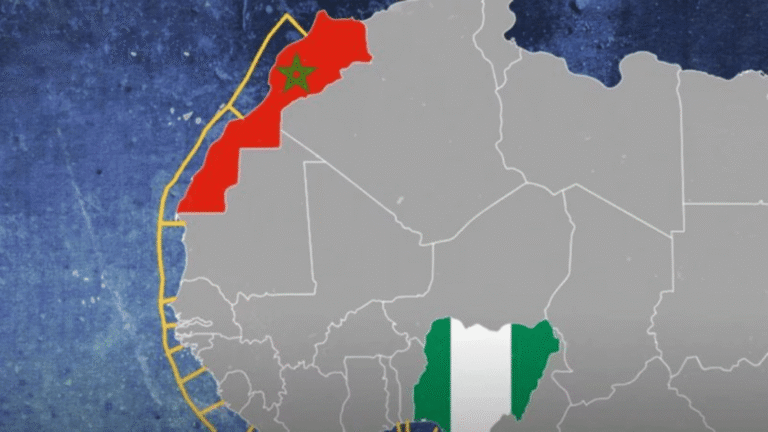
For years, two competing routes have sought to connect Nigeria’s vast gas reserves to European markets. Algeria has long championed the trans-Saharan pipeline — an ambitious project linking Nigeria to its existing network via Niger, offering direct access to the Mediterranean.
Morocco, however, has pursued an Atlantic alternative running along West Africa’s coastline, crossing more than ten countries before reaching the Cherifian kingdom, where the gas could be exported to Spain.
While Algeria’s proposal remains largely theoretical, Morocco’s project has just taken a decisive leap forward. According to The Guardian Nigeria, a new dedicated company has been established to oversee its implementation — a move signaling serious progress toward realization.
A structure to secure financing
The joint announcement by Nigeria and Morocco marks more than symbolic cooperation. The creation of a specialized entity represents a turning point, allowing for tighter coordination of technical and financial aspects for a project estimated at nearly $25 billion.
Amina Benkhadra, Director General of Morocco’s National Office of Hydrocarbons and Mines (ONHYM), said the establishment of this company provides “clarity both in the project’s conception and its financing.” In other words, the pipeline is no longer a distant dream but a structured initiative with an identified governance body — one capable of engaging directly with major international financial institutions.
Until now, the project was little more than a concept on paper. The new company lays the first bricks of an actual foundation. For global lenders often cautious about large-scale African infrastructure projects, the presence of a single, credible interlocutor strengthens confidence and makes investment commitments more feasible.
Regional competition and geopolitical stakes
This development gives Morocco a clear advantage over Algeria. The trans-Saharan pipeline continues to face significant challenges — security instability across the Sahel, difficulties in securing financing, and slow political decision-making. By contrast, the Atlantic route is advancing with a more organized and pragmatic framework.
The idea of connecting West African nations directly to Europe’s energy market has attracted several regional governments eager to expand their domestic energy supply and industrial capacity.
Nigeria, the pivotal actor in both projects, now appears to lean toward Morocco as a faster and more strategic partner to monetize its gas potential.
In the long term, this shift could reshape energy influence across both North and West Africa. While Algeria retains its dominance as an established supplier to Europe, Morocco’s rapid progress signals that the continent’s next great energy corridor may be charted along the Atlantic — not the Sahara.



